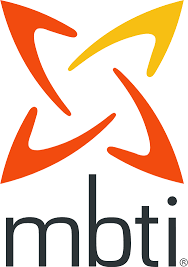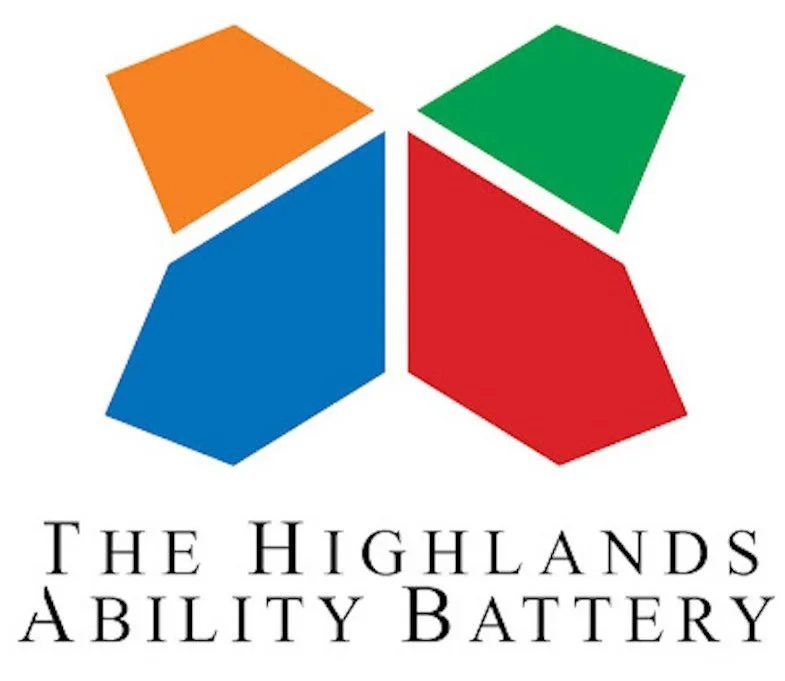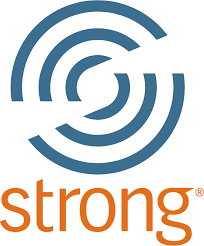
Instruments
Myers-Briggs Type Indicator® (MBTI®)
The Myers-Briggs Type Indicator® (MBTI®) is the world's most widely used personality indicator, with over 2 million people taking it annually. It is the pre-eminent instrument for giving you a deep understanding of yourself and others. It explains how differences between people can be observed and described. It therefore gives you very clear and obvious advice on building better interpersonal relationships, building an effective team dynamic and developing your leadership style. The MBTI® is therefore the choice of the world's leading management trainers, leadership coaches and employee counselors.
It is a forced choice, self-report, personality questionnaire used to measure and describe people's preferences for taking in information, making decisions and orienting their lives. It is based on Carl Jung's theory of perception and judgment and classifies people into 16 broad personality Types. The MBTI® tool provides a simple way of seeing how people are alike and how they differ. You are invited to celebrate your own strengths then value and respect others for the different gifts they bring to life and work.
Applications of the MBTI®:
Leadership development – identifying leadership style and developing management skills
Team building and team development – improving communication, enhancing team problem solving and building team synergy
Organizational change – developing resilience to change and guiding change management initiatives
Persuading and influencing – developing selling and influencing skills
Coaching and giving feedback – identifying motivators for different individuals and motivating appropriately
Resolving conflict – improving the quality of relationships, improving communication and removing misunderstandings.
Self-understanding and development
Career development and exploration
Organization development
Relationship counseling
Education and curriculum development
Academic counseling
Diversity and multicultural training
Highlands Ability Battery
The Highlands Ability Battery is based on the research beginning with the work of Johnson O’Connor. Abilities are hard-wired in each of us at birth. They can be measured after the age of fourteen. The Highlands Ability Battery uses objective hands-on work samples, to measure 22 natural abilities. The Highlands Report explains how to use abilities to find the working and learning environments in which the client will most likely be satisfied and successful. Clients completing the Highlands Ability Battery will learn about their…
…personal style (best environments and roles)
…driving abilities (essential to career satisfaction)
…specialized abilities (enhance career success)
…decision-making style
…problem solving style
…communication style
…best learning channels & strategies for studying
…best work type matches
…fields in which their abilities are valued
…suggested ACTION STEPS
Keirsey’s Temperament Sorter
Keirsey’s Temperament Sorter was also originated from the theory of Carl Jung so there are a lot of similarities between Keirsey’s and the Myers-Briggs Type Indicator® (MBTI®). They are both the most widely used and trusted personality assessments. Dr. Keirsey added a very important Temperament Theory into the personality assessment arena which become the most important methodology or lens to observe personality and human behavior. MBTI users can benefit tremendously by using Keirsey’s Temperament Theory to verify the accuracy & consistency of the personality assessment.
The Keirsey Temperament Sorter®-II (KTS®-II) is a powerful 70 question personality instrument that helps individuals discover their personality type. The KTS-II is based on Keirsey Temperament Theory™, published in the best-selling books, Please Understand Me® and Please Understand Me II, by Dr. David Keirsey.
According to Keirsey Temperament Theory, there are four basic temperament groups which describe human behavior. Keirsey’s four temperaments are referred to as Artisans™, Guardians™, Rationals™ and Idealists™. These four temperaments can be further subdivided, often referred to as “Character Types”. There are four types of Artisans, four types of Guardians, four types of Rationals, and four types of Idealists.
Strong Interest Inventory
The Strong Interest Inventory® is the most sensitive and widely used interest inventory available and designed to help you identify your pattern of vocational interests. It was developed at Stanford University in the late 1920s by Professor Edward K Strong with Jo-Ida Hansen, and David Campbell and was based on the work of John Holland. Holland defined six basic occupational themes (called Holland Codes) that can be used to categories occupations as well as individuals.
The Strong measures your interests using 291 different questions to explore your likes and dislikes with regard to careers, leisure activities, school subjects and other categories.
107 questions about careers you would be interested in doing
46 questions about interest in different subject areas
84 questions about interest in activities
29 questions about interest in different leisure activities
25 questions on the people you would like to work with and personal characteristics
Your responses are compared to a representative sample of occupations followed by:
People who enjoy their work
have worked in that area for at least three years
who do typical work for the field
People tend to search out those environments that match their interests, and an environment attracts people who share similar interests.
The Reuven Bar-On EQi Assessment Tool
The BarOn EQ-i® Assessment tool is based on over 20 years of research by Dr. Reuven Bar-On and tested on over 85,000 individuals worldwide. It measures emotionally and socially intelligent behavior as reported by respondents. Dr. Bar-On’s definition of Emotional Intelligence is ” an array of non-cognitive (emotional and social) capabilities, competencies and skills that influence one’s ability to succeed in coping with environmental demands and pressures.”
BarOn EQ-i® 125 consists of 125 items and includes four validity indices and a sophisticated correction factor rendering scores for the following components:
Intrapersonal
(Self-Regard, Emotional Self-Awareness, Assertiveness, Independence, and Self-Actualization)Interpersonal
(Empathy, Social Responsibility, and Interpersonal Relationship)Stress Management
(Stress Tolerance and Impulse Control)Adaptability
(Reality Testing, Flexibility, and Problem Solving)General Mood Scale
(Optimism and Happiness)
Center for Creative Leadership (CCL) 360-degree Feedback
Center for Creative Leadership 360-degree Feedback is a method of systematically collecting opinions about an individual's performance from a wide range of coworkers. This could include peers, direct reports, the boss, the boss's peers — along with people outside the organization, such as customers. The benefit of collecting data of this kind is that the person gets to see a panorama of perceptions rather than just self-perception, which affords a more complete picture.
CCL Assessment Suite
The Suite includes four research-based 360-degree instruments with a consistent reporting format to help organizations create a common leadership language and consistent feedback process at multiple levels through the company.
Executive Dimensions® assesses top-level leadership behaviors.
Benchmarks® measures the skills learned through development that are critical for success, as well as, possible career derailers.
Prospector® assesses skills for learning and leading.
360 BY DESIGN® focuses on competencies important to the organization.
Fundamental Interpersonal Relations Orientation™
The Firo-B® is ideal for anyone wanting to improve relationships with other people, whether just one other person or with a group of people.
The FIRO-B® measures your interpersonal needs in 3 areas:
Inclusion - This relates to forming new relationships with others. It determines how much contact a person wants to have with others.
Control - This relates to decision making, influence and persuasion between people. It determines the degree of power or dominance a person seeks.
Affection – This relates to emotional ties and warm connections between people. It determines the degree of closeness a person seeks.
For each area you will get a result which describes your expressed score – the extent to which you will initiate the behavior and the wanted score, the extent to which you want or will accept that behavior from others. You will find out the extent that your behavior is congruent, or not, with what you actually want. It is the start of an in-depth understanding of behavior and whether you want to (or not) make changes. If you choose not to make changes you will have raised your awareness of the consequences.
The Firo-B® is a fantastic instrument to help you understand your own behavior and the behavior of others. Using these insights you can learn how to get along better at work, in personal relationships and in social settings.







